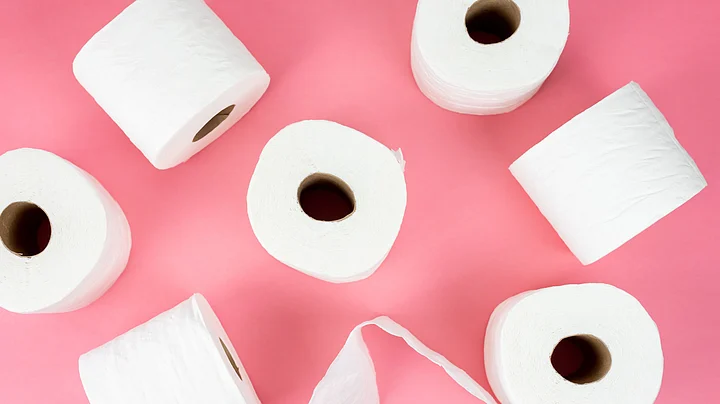You are locked down in your home, you are trying to get that 20 minute exercise in the midst of all that house and office work, you are eating home cooked meals, and yet, somehow, your gut has taken a turn for the worse.
How exactly does this coronavirus lockdown affect the functioning of our digestive system and the gastrointestinal tract?
In conversation with FIT, Dr Avnish Seth, Director, Gastroenterology at Fortis Memorial Research Institute, explains, “Quarantine constipation is a reality and a result of physical inactivity and stress. Movement of our intestine is a complex process affected by diet, exercise, stress and systemic disease.”
Let’s break it down.
Sleep and Constipation
One common consequence of the lockdown is an erratic sleep schedule. For most of us, a break from our daily routines and the need to no longer ‘plan’ our days has meant toying with our sleeping hours. These sleep disturbances are to a large extent responsible for complaints of constipation or any other bowel issues that people may face during the lockdown.
The biological clock invariably affects all our body’s systems, and diet and digestion are no exceptions. In fact, our colon has its own circadian rhythm, often called the human intestinal circadian clock.
The link between sleep cycles and our physiological functions has been studied extensively. By influencing hunger, feeding, digestion, acid secretion by the stomach and gastric motor activity, sleep affects our nutrient absorption. According to this paper, dysfunction of the sleep–wake control or circadian clocks of the small and large intestine has been implicated in Irritable Bowel Syndrome (IBS) and Inflammatory bowel disease (IBD).
Moreover, the sleep rhythm itself depends on several factors such as diet, movement, exercise and stress - all of which indirectly affect digestion.
But the direct link between these factors and gut health is as real as the indirect one caused through sleep disturbances.
Dr Ajay Jhaveri, Consultant, Gastroenterology, Jaslok Hospital and Research Centre tells FIT, “A lack of exercise, sitting at home and working, the complete lack of movement have a deep impact on your gut health.”
COVID-19 Stress & Your Gut
The pandemic and the uncertainty surrounding it has triggered stress and anxiety among many of us. FIT had earlier discussed how during times of a crisis, existing mental health problems can flare up, as can the generalised anxiety we feel in our daily lives.
Add to this a lack of physical movement and exercise, which could further enhance feelings of stress and fear about the unprecedented situation.
Dr Jhaveri says, “Stress can lead to all kinds of somatic problems, including the functioning of your gut.”
This becomes clearer when we study how interconnected our brains and stomachs are. A troubled brain can impact digestion as severely as discomfort in the stomach can impact mental health. Hence, any disturbances to our mind indelibly would impact the gut, the doctors assert.
Tips to Take Care of Your Gut During This Lockdown
Our guts are made up of microbiome that play a role in determining the strengths of our immune systems. While ‘boosting’ immunity is not a definite way to stay safe and protected from the virus, it can help to fight the pathogen once infected. In fact, compromised immunity is one of the reasons why the elderly and people with comorbidities and chronic illnesses are at higher risk of developing serious complications from the disease, as data from across the world has shown.
In other words, a healthy interaction between our immune system and the gut microbiome is crucial for the maintenance of our overall health, and any imbalances in the gut can disrupt immune responses and lead to illnesses.
But with the lockdown and all the resultant lifestyle changes in place, how do you ensure a healthy gut?
Dr Ajay Jhaveri says, “This is the best time you can ever get to improve your lifestyle. ‘Early to bed and early to rise’ should be your aim. Instil a routine and fix your sleeping, eating and exercise timings.”
Dr Seth elaborates on some tips that can help improve gut health during the:
- Luckily for us, there is an adequate supply of fresh fruits and vegetables during the pandemic. These should be consumed in abundance. Dietary fibre increases gut motility and promotes the growth of healthy bacteria, thus boosting gut immunity.
- One should keep a strict watch on the weight by controlling the intake of calories, carbohydrates and fats.
- Physically active individuals have a lower prevalence of constipation. We should devote about an hour every day to skipping, floor exercises, yoga, dance or any form of exercise one is comfortable within the limitations of social distancing. Besides helping in intestine movement, exercise enhances digestion by removing fat from the liver.the
- Probiotics have been shown to influence immunity, reduce antibiotic use in children and enhance protection of influenza vaccines. Vitamin D and vitamin C are also known to modulate the immune system
- According to Dr Jhaveri, hydration is also extremely important. Drink sufficient water.
- He adds that shutting off social media for a while every day is important for our mental peace. With so much of information around, our thoughts and mental health tend to get destabilised.
Again, none of this can ensure protection from the virus. Dr Seth stresses, “There is no convincing scientific evidence that use of probiotics and vitamins prevent COVID-19 infection.”
However, this can all help solve problems of ‘quarantine constipation’, diarrhoea or any other gut-related discomfort caused by the lockdown. If none of this works, consulting a doctor is a must.
(At The Quint, we question everything. Play an active role in shaping our journalism by becoming a member today.)
